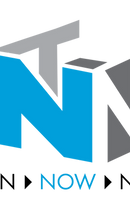
CREW is centered on empowerment and healing, designed to meet the varying needs of incarcerated women.






























CREW Services

Safe Rides
CREW offers safe rides for every woman without a support system, plus clothing, hygiene, food, and cover-up of sex trafficking or gang-related tattoos.

Healing Program
Then-Now-Next: Building a Foundation for Healing is a curriculum designed for women in prison, focused on healing from trauma.

Book Club
CREW leads a weekly book club inside the prison focused on empowerment and healing.

Reentry Preparation
Roots & Wings is a series of workshops for incarcerated women preparing for release.

Tattoo Cover-ups
CREW offers cover-ups of sex trafficking brands or gang-related tattoos at no cost to women upon their release.

Mission
The mission of CREW is to advance the empowerment of women through healing.
Vision
The vision of CREW is healed women who are empowered to lead happy, healthy, and helpful lives and who come alongside other women to help them do the same, no longer vulnerable to those who seek to cause them harm.
Purpose
The purpose of CREW is to address vulnerabilities and needs of women impacted by the criminal legal system through workshops, classes, volunteers, and community resources.

Nothing About Us Without Us
The creation and direction of CREW came from a relationship between the Lifers Club of Coffee Creek and TJC. The CREW director began connecting with women in the CCCF over concerns of them living in an under-resourced community when compared to some of the men’s prisons or, especially, in comparison to free society. It was from that relationship that the concerns being addressed by CREW were identified and interventions developed. The women in the Lifers Club are integral to every aspect of CREW. For example, they identify different trauma-informed workshops they believe are needed for women inside the prison. CREW creates the workshops, then finds the right people to facilitate them, and the women in the Lifers Club handle the arrangements inside the prison for room reservations, participant sign-ups, and administrative liaising. This is a true partnership, and the two components (inside and outside) could not be successful without the other.


Understanding the Need
Increasing empowerment to decrease victimization
In response to alarming revelations from adults in custody (AICs) at Coffee Creek Correctional Facility (CCCF) and confirmed by staff and administration at the prison, CREW (Connecting Resources to Empower Women) was created to focus on incarcerated women who are being recruited or forced into sex trafficking during their time in prison and/or upon their release. The first goal of CREW is to intervene to address two specific concerns.
First, fellow AICs within the prison identify women who are most likely to be susceptible to predators, then help recruit them into relationships with traffickers on the outside. Then, the traffickers (pimps) begin contacting the women in prison and putting money on their books to create an obligation for the women to work for them upon their release from prison. The second issue is that women who do not have a support system are released wearing a gray sweatsuit with a clear bag of their belongings, and left at a bus stop with a virtual target on their back for traffickers who are able to easily identify and abduct them.
Oregon Department of Corrections is working to ensure women have clothing and backpacks upon release to make them less easily identifiable. However, the need remains to make sure women all have safe rides to a safe location and are not left sitting at a bus stop for hours.
Staff and administration at CCCF are trying to protect the AICs from these predators, but with extreme under-staffing, they are struggling with covering the most basic of needs at this time. CREW will be able to take some of the burden off CCCF by intervening with these specific concerns. Also, by helping the women heal from previous abuse, violence, and trauma, the culture within the prison will improve as has been demonstrated with similar efforts in other prisons through restorative justice programming.
The immediate need is to decrease victimization through sex trafficking at CCCF. CREW is prepared to step in and fill this gap in programming and support.
Benefits
For the women themselves, there are the obvious benefits of healing from trauma and the positive impact that will have on their wellbeing. In addition, people who have experienced healing and who leave prison healthy, strong, and empowered are less likely to recidivate, thereby improving public safety. Also, many of these women have children who are in the foster care system. If they come out as prepared mothers ready and able to regain custody of their children and to stay away from any future criminal involvement, this will decrease the number of children caught up in the foster care system and away from the foster-care-to-prison pipeline. Further, numerous studies have shown that when women do well, they give back to their communities and families, multiplying the positive effects of investing in their success.



Current Projects
CREW is creating trauma-informed interventions and programming to empower incarcerated women vulnerable to predatory sex trafficking in prison and upon release because of histories of violence, abuse, and unresolved trauma. First, we provide workshops and courses within the prison to help women heal from previous trauma, violence, and abuse. This makes them healthier, stronger, and empowered to resist grooming and recruitment. Second, we make sure all women have safe rides upon release. CREW is has a coalition of volunteers who will pick someone up, take them to breakfast, and make sure they get to their new home safely. Every safe ride also includes a suitcase of clothing and hygiene items if needed, and a free tattoo cover-up of sex trafficking brands or gang-related tattoos, as much as funding will allow.
